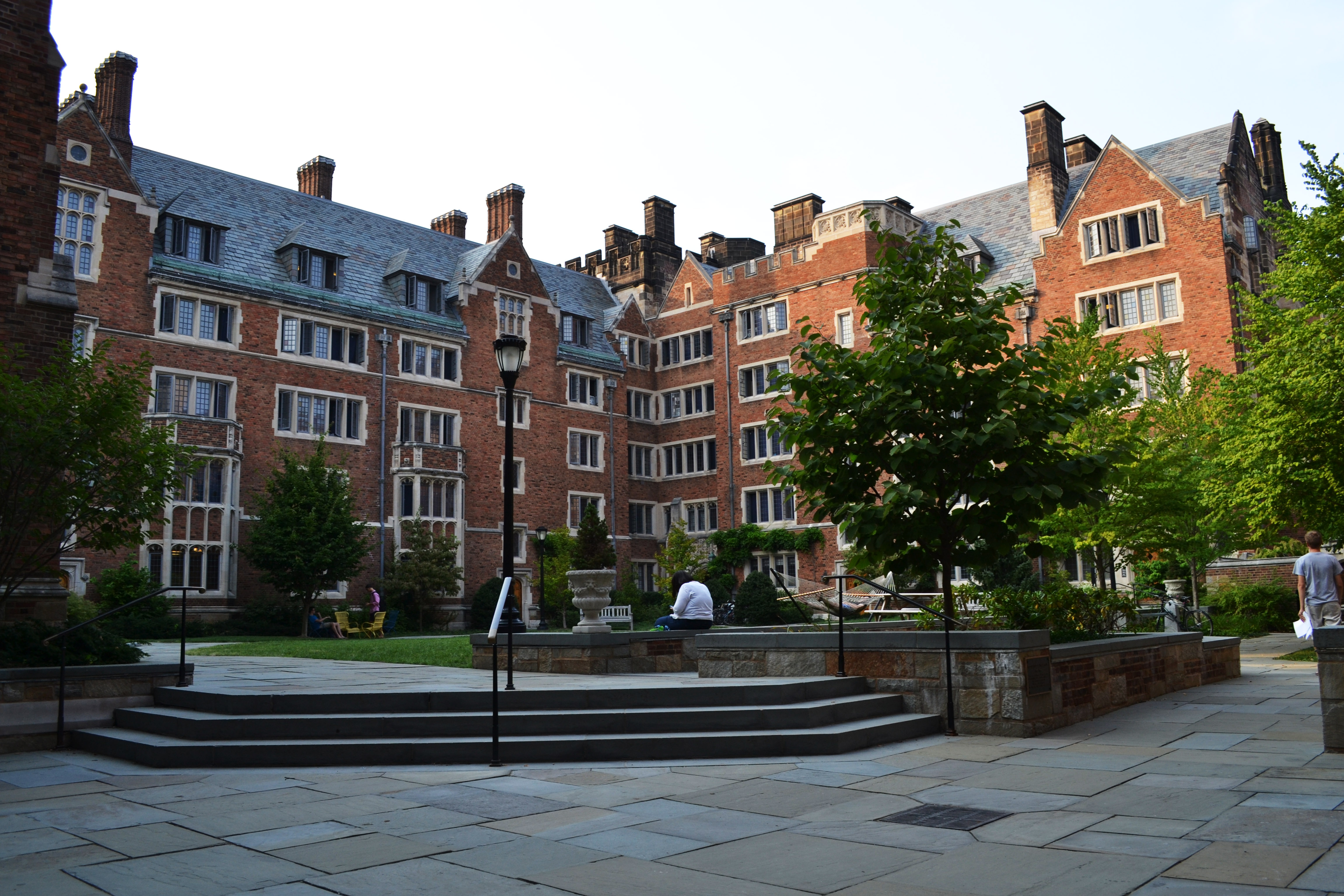
New Haven residents and Yale students protesting Calhoun College’s name this past Friday delivered a letter to the Office of the President describing an incident of alleged harassment by a Yale police officer at a separate rally two weeks ago.
Roughly 20 Yalies and members of Unidad Latina en Acción held up chains and an orange banner that said “Change the Name” as they marched from Calhoun College to Woodbridge Hall. There, they handed a member of University President Peter Salovey’s staff a letter that said a Yale police officer videotaped and warned them they were blocking traffic at a demonstration Sept. 16. The document, which was signed by Elm City residents and Yale students alike, asked that Salovey discipline the officer and educate the Yale police force on protestors’ right to assemble.
“Last week, this police officer came without announcing and started taking pictures and videos,” said ULA organizer John Lugo. “It’s a scare tactic they are using against us.”
He added that the officer accused them of blocking the streets, even though they only march across Elm Street when the light is red.
Steven Woznyk, assistant chief of the Yale Police Department, said in a Monday email to the News that Yale police officials are aware of the letter and have begun an internal inquiry into the matter.
“Please know that the Yale Police Department takes very seriously its obligation to serve with the utmost integrity, professionalism and respect,” Woznyk wrote.
ULA has been protesting the residential college’s name every Friday at 12:30 p.m. since Yale employee Corey Menafee smashed a window in Calhoun depicting two slaves. Menafee resigned after the incident, before being reinstated by the University.
The protesters gave speeches in front of Woodbridge Hall before ringing the doorbell at 12:57 p.m. Although Salovey did not come outside, Director of Administrative Affairs Pilar Montalvo took the letter and thanked the protesters, said ULA organizer Megan Fountain ’07.
Six police officers, including the one implicated in the letter, watched the demonstrations, but declined to comment.
Protestors also held up photos with signs that stated why they believe Calhoun’s name should be changed and encouraged observers to do the same. Menafee, who was present for part of the protest, also paused to take a photo with a sign.
Wilson He ’20, who participated in the march, said he believes Yale cannot pride itself as a bastion of free speech and diversity when it is not representing people of color or American ideals.
“The constant celebration of Calhoun even a century after slavery ended ignores the suffering slaves burdened and is a moral blot upon Yale’s history,” he said. “When you honor something with a name you are honoring its legacy and that legacy is slavery.”
Three other protestors interviewed echoed Wilson’s sentiment, saying they decided to take part in the event because the name endorses racism.
Calhoun College opened in 1933.







